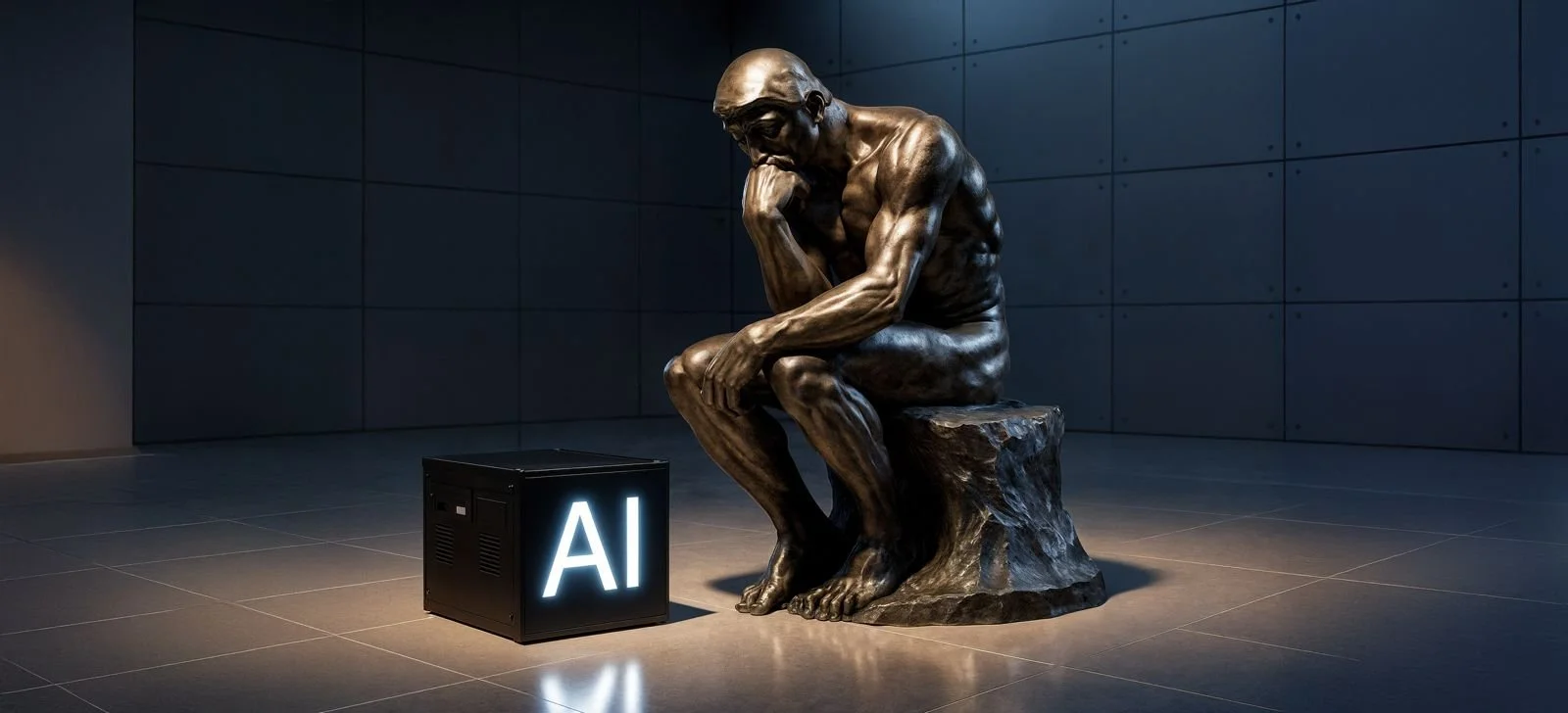What gives life meaning if AI does everything?
Elon Musk thinks we're heading toward a world where AI does all the work, and we all get paid to exist.
Universal basic income. No jobs. Infinite productivity. The machines handle everything.
It sounds like paradise. Or purgatory. Depends on your relationship with purpose.
Here's the question that keeps us up at night: If machines can do everything better than us, what's the point of being human?
The productivity trap For decades, we've been sold the idea that human worth equals human output.
Your value is your job title. Your contribution is your paycheck. Your meaning is your metrics.
And there's truth in that. The teacher who shapes young minds, the engineer who builds bridges, the nurse who saves lives, the entrepreneur who creates jobs all matter deeply. Their work matters. Their contributions build the foundation of civilization. The dignity of earning your way, of contributing to the common good, of building something larger than yourself aren't antiquated values, they're human necessities.
But what happens when machines out-produce us in every measurable way? When AI can write better, think faster, create more, solve problems we didn't even know existed?
Do we become obsolete? Or do we finally become human?
The meaning crisis hiding in plain sight.
We're already living through a preview of this future. Not because of AI, but because of something much more familiar: retirement.
Ask anyone who's recently retired about their first year: The relief fades, the freedom turns fuzzy. The question "What do I do now?" becomes haunting.
This isn't the result of meaningless work. We've confused having a job with having a purpose. The accountant who spent decades ensuring businesses ran efficiently, the factory worker who took pride in quality craftsmanship, the manager who built teams and developed people weren't just earning paychecks, they were contributing to something bigger.
But when that contribution ends, what remains?
Purpose, it turns out, has everything to do with contribution but not everything to do with traditional productivity.
What machines can't touch.
AI can optimize, it can generate, it can even surprise us with its outputs.
But it can't take pride in a job well done. It can't feel the satisfaction of providing for a family. It can't experience the dignity that comes from being needed, from solving real problems for real people.
It can't yearn, it can't hope, it can't find meaning in watching a sunset or holding a hand or sharing a story that makes us feel less alone.
Machines don't need meaning, they just need instructions.
Humans need meaning.
We need reasons to wake up that go beyond what we can produce. But we also need to feel useful, needed, valued for what we contribute.
The Japanese have a word for it: Ikigai.
Your reason for being: not just your job, not just your capital, not just your output, but the intersection of what you love, what you're good at, what the world needs, and what you can be paid for.
That last part about "what you can be paid for" isn't just about money. It's about being valued enough that someone is willing to exchange their resources for your contribution. It's about economic dignity, about being a contributor rather than just a consumer.
In an AI-abundant world, the "what you can be paid for" part might become irrelevant. But the need to be valued, to contribute, to matter, that remains.
Which means we're left with the three things that matter most:
What you love
What you're good at
What the world needs
And suddenly, purpose becomes personal again, but contribution remains essential.
The renaissance we're not ready for.
Throughout history, the greatest creative explosions happened when people had time to think, explore, and create without worrying about survival.
The Renaissance.
The Enlightenment.
The 1960s counterculture.
All periods when a critical mass of people had enough security to ask bigger questions about life, meaning, and human potential.
But notice something: These weren't periods of idleness. They were periods of different kinds of work driven by curiosity, passion, and human flourishing rather than just survival.
Musk's AI utopia could be the ultimate Renaissance. But only if we prepare for it psychologically and economically. Time without purpose isn't freedom, it's existential terror. And wealth without contribution isn't fulfillment, it's spiritual poverty.
What gives life meaning when traditional work disappears? The answer is ancient. And it's been hiding behind our obsession with traditional productivity.
Connection. The relationships we build, the communities we create, the ways we show up for each other.
Contribution but redefined. Not just making widgets or processing data, but contributing to the human experience. Art, music, stories, ideas, moments of beauty that make life worth living. Teaching, mentoring, caring for the elderly, raising children with intention.
Growth. Not career advancement, but personal evolution. Becoming more aware, more compassionate, more fully yourself.
Stewardship. Taking care of our communities, our environment, our shared resources. The kind of work that has always mattered but often went unpaid.
The preparation we need now The transition to an AI-dominated world won't happen overnight. But the meaning crisis is already here.
So what do we do?
Honor the work that matters now. Recognize that the person who gets up every morning, pays their taxes, and contributes to society is living with dignity and purpose. Their work matters, their contribution counts, their effort deserves respect.
Start practicing purpose beyond paycheck. Spend time on things that matter to you but don't make you money. Garden. Write. Teach. Care for someone. Create something useless and beautiful. Volunteer. Mentor. Serve.
Invest in relationships. Not networking. Real human connection. The kind that survives economic shifts and technological revolutions.
Develop your humanity. Empathy, creativity, intuition, wonder. The qualities that make us irreplaceable not because we're productive, but because we're human.
Where are we going?
Ask bigger questions. Not "What do I want to do for work?" but "How do I want to contribute?" Not "How do I advance my career?" but "How do I make myself useful to the world?"
The choice ahead Musk's vision might happen. It might not. But the question it raises is already urgent:
Are you ready to find meaning in a world that might not need your traditional productivity, but will always need your humanity?
The future of meaning isn't about competing with machines. It's about remembering what makes life worth living when survival is no longer the point. It's about transitioning from being valued for what we produce to being valued for who we are and how we contribute to human flourishing.
The machines will optimize everything. But they can't optimize the human heart. They can't replace the satisfaction of meaningful work, the dignity of contribution, or the fulfillment that comes from being needed.
And maybe that's exactly what we need to remember.
Ready to explore what gives your life meaning beyond traditional productivity, while honoring the dignity of all honest work?
Let's have that conversation.
Written with humanity in mind.



